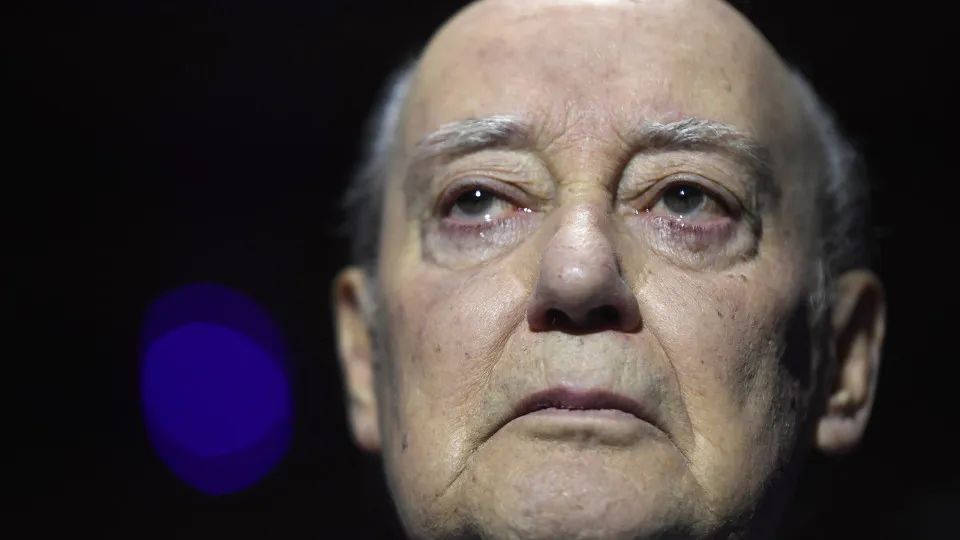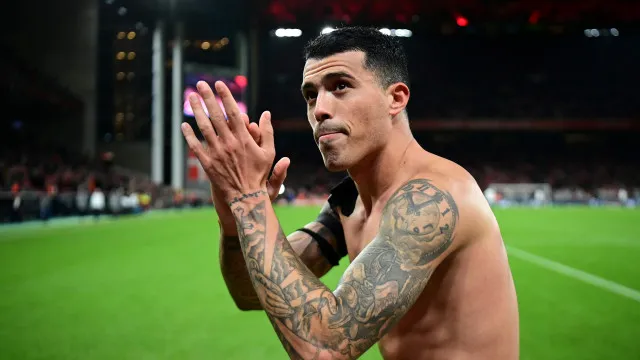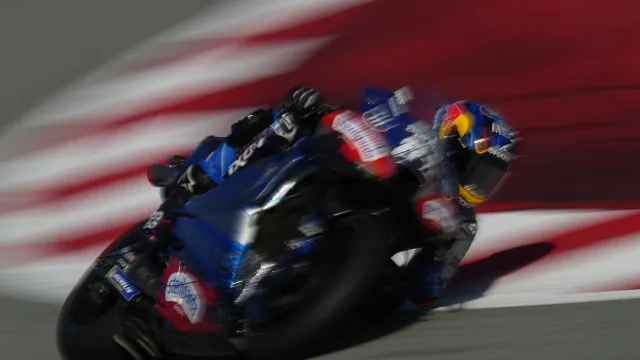Pinto da Costa ends 'reign' with 15,344 days of successes and controversies
Pinto da Costa suffered a historic defeat in the FC Porto elections on Saturday, culminating 15 terms and 15,344 consecutive days as president of the national football runners-up, whose status he reshaped with successes and controversies.

© Getty Images




Descarregue a nossa App gratuita.
Oitavo ano consecutivo Escolha do Consumidor para Imprensa Online e eleito o produto do ano 2024.
* Estudo da e Netsonda, nov. e dez. 2023 produtodoano- pt.com

Descarregue a nossa App gratuita.
Oitavo ano consecutivo Escolha do Consumidor para Imprensa Online e eleito o produto do ano 2024.
* Estudo da e Netsonda, nov. e dez. 2023 produtodoano- pt.com
Recomendados para si
Classificados Auto
Leia Também










Últimas Notícias












| Clube | J | PTS | |||
|---|---|---|---|---|---|
| 1 | Sporting | 11 | 33 | ||
| 2 | FC Porto | 11 | 27 | ||
| 3 | Benfica | 10 | 25 | ||
| 4 | Santa Clara | 11 | 21 | ||
| 5 | Sp. Braga | 11 | 20 | ||
| 6 | Vitória SC | 11 | 18 | ||
| 7 | Famalicão | 11 | 17 | ||
| 8 | Moreirense | 11 | 17 | ||
| 9 | Casa Pia | 11 | 13 | ||
| 10 | Rio Ave | 11 | 12 | ||
| 11 | Gil Vicente | 11 | 10 | ||
| 12 | Estoril | 11 | 10 | ||
| 13 | AVS | 11 | 10 | ||
| 14 | Boavista | 11 | 9 | ||
| 15 | Estrela | 11 | 9 | ||
| 16 | Arouca | 11 | 8 | ||
| 17 | C.D. Nacional | 10 | 8 | ||
| 18 | Farense | 11 | 5 |
| Clube | J | PTS | |||
|---|---|---|---|---|---|
| 1 | Barcelona | 13 | 33 | ||
| 2 | Real Madrid | 12 | 27 | ||
| 3 | Atlético Madrid | 13 | 26 | ||
| 4 | Villarreal | 12 | 24 | ||
| 5 | Osasuna | 13 | 21 | ||
| 6 | Athletic Club | 13 | 20 | ||
| 7 | Real Betis | 13 | 20 | ||
| 8 | Real Sociedad | 13 | 18 | ||
| 9 | Mallorca | 13 | 18 | ||
| 10 | Girona | 13 | 18 | ||
| 11 | Celta Vigo | 13 | 17 | ||
| 12 | Rayo Vallecano | 12 | 16 | ||
| 13 | Sevilla | 13 | 15 | ||
| 14 | Leganés | 13 | 14 | ||
| 15 | Alavés | 13 | 13 | ||
| 16 | Las Palmas | 13 | 12 | ||
| 17 | Getafe | 13 | 10 | ||
| 18 | Espanyol | 12 | 10 | ||
| 19 | Real Valladolid | 13 | 9 | ||
| 20 | Valencia | 11 | 7 |
| Clube | J | PTS | |||
|---|---|---|---|---|---|
| 1 | Liverpool | 11 | 28 | ||
| 2 | Manchester City | 11 | 23 | ||
| 3 | Chelsea | 11 | 19 | ||
| 4 | Arsenal | 11 | 19 | ||
| 5 | Nottingham Forest | 11 | 19 | ||
| 6 | Brighton & Hove Albion | 11 | 19 | ||
| 7 | Fulham | 11 | 18 | ||
| 8 | Newcastle United | 11 | 18 | ||
| 9 | Aston Villa | 11 | 18 | ||
| 10 | Tottenham Hotspur | 11 | 16 | ||
| 11 | Brentford | 11 | 16 | ||
| 12 | AFC Bournemouth | 11 | 15 | ||
| 13 | Manchester United | 11 | 15 | ||
| 14 | West Ham United | 11 | 12 | ||
| 15 | Leicester City | 11 | 10 | ||
| 16 | Everton | 11 | 10 | ||
| 17 | Ipswich Town | 11 | 8 | ||
| 18 | Crystal Palace | 11 | 7 | ||
| 19 | Wolverhampton Wanderers | 11 | 6 | ||
| 20 | Southampton | 11 | 4 |
| Clube | J | PTS | |||
|---|---|---|---|---|---|
| 1 | Napoli | 12 | 26 | ||
| 2 | Atalanta | 12 | 25 | ||
| 3 | Fiorentina | 12 | 25 | ||
| 4 | Internazionale | 12 | 25 | ||
| 5 | Lazio | 12 | 25 | ||
| 6 | Juventus | 12 | 24 | ||
| 7 | AC Milan | 11 | 18 | ||
| 8 | Bologna | 11 | 18 | ||
| 9 | Udinese | 12 | 16 | ||
| 10 | Empoli | 12 | 15 | ||
| 11 | Torino | 12 | 14 | ||
| 12 | AS Roma | 12 | 13 | ||
| 13 | Parma | 12 | 12 | ||
| 14 | Hellas Verona | 12 | 12 | ||
| 15 | Como | 12 | 10 | ||
| 16 | Cagliari | 12 | 10 | ||
| 17 | Genoa | 12 | 10 | ||
| 18 | Lecce | 12 | 9 | ||
| 19 | Monza | 12 | 8 | ||
| 20 | Venezia | 12 | 8 |
|
Liga Campeões
|
Liga Europa
|
Despromoção
|
|---|
| Jogador | Golos | ||||
|---|---|---|---|---|---|
| 1 | Viktor Gyokeres | 16 | |||
| 2 | Samu | 8 | |||
| 3 | Wenderson Galeno | 8 | |||
| 4 | Aktürkoglu | 5 | |||
| 5 | Kanya Fujimoto | 5 | |||
| 6 | Clayton | 5 | |||
| 7 | Cassiano | 4 | |||
| 8 | Amine El Ouazzani | 4 | |||
| 9 | Pote | 4 | |||
| 10 | Luís Nlavo | 4 |
| Jogador | Golos | ||||
|---|---|---|---|---|---|
| 1 | Robert Lewandowski | 14 | |||
| 2 | Vinícius Júnior | 8 | |||
| 3 | Ayoze Perez | 7 | |||
| 4 | Arnaut Danjuma Groeneveld | 2 | |||
| 5 | Raphael Dias Belloli | 7 | |||
| 6 | Ante Budimir | 6 | |||
| 7 | Kylian Mbappe Lottin | 6 | |||
| 8 | Daniel Olmo Carvajal | 5 | |||
| 9 | Giovani Lo Celso | 5 | |||
| 10 | Lamine Yamal | 5 |
| Jogador | Golos | ||||
|---|---|---|---|---|---|
| 1 | Erling Braut Haland | 12 | |||
| 2 | Chris Wood | 8 | |||
| 3 | Mohamed Salah | 8 | |||
| 4 | Bryan Mbeumo | 8 | |||
| 5 | Yoane Wissa | 7 | |||
| 6 | Cole Palmer | 7 | |||
| 7 | Liam Delap | 6 | |||
| 8 | Nicolas Jackson | 6 | |||
| 9 | Danny Welbeck | 6 | |||
| 10 | Luis Díaz | 5 |
| Jogador | Golos | ||||
|---|---|---|---|---|---|
| 1 | Mateo Retegui | 11 | |||
| 2 | Moise Kean | 8 | |||
| 3 | Marcus Thuram | 7 | |||
| 4 | Ademola Lookman | 6 | |||
| 5 | Dusan Vlahovic | 6 | |||
| 6 | Riccardo Orsolini | 5 | |||
| 7 | Christian Pulisic | 5 | |||
| 8 | Khvicha Kvaratskhelia | 5 | |||
| 9 | Valentín Castellanos | 5 | |||
| 10 | Lautaro Martínez | 5 |
Newsletter
Receba os principais destaques todos os dias no seu email.
Mais lidas
- Última hora
- Dia
- Semana
-
1
desporto Óbito
-
2
-
3
desporto Liga das Nações
Do susto à goleada. Cristiano Ronaldo bisa e Portugal carimba 'quartos'
-
4
desporto Seleção nacional
Jovem adepto invadiu relvado no Dragão e Cristiano Ronaldo reagiu assim
-
5
desporto Liga das Nações
Polémica. Jogadores do Kosovo abandonam relvado e jogo acaba suspenso
-
6
desporto Liga das Nações
"Uma barbaridade". Cristiano Ronaldo volta a surpreender o mundo
-
7
-
8
desporto Liga das Nações
Roberto Martínez faz mexidas. Eis o onze de Portugal diante da Polónia
-
9
desporto Fotogaleria
As imagens do combate Jake Paul-Mike Tyson, que não agradou a todos
-
10
desporto Seleção nacional
Roberto Martínez dispensa quatro jogadores para o jogo diante da Croácia


Newsletter
Seja o primeiro a saber
Receba os principais destaques todos os dias no seu email.
© 2024 Notícias ao Minuto. Todos os direitos reservados
- Estatuto editorial
- Propriedade intelectual
- Política de privacidade
- Termos & condições
- Ficha técnica
- Contactos
- Equipa












